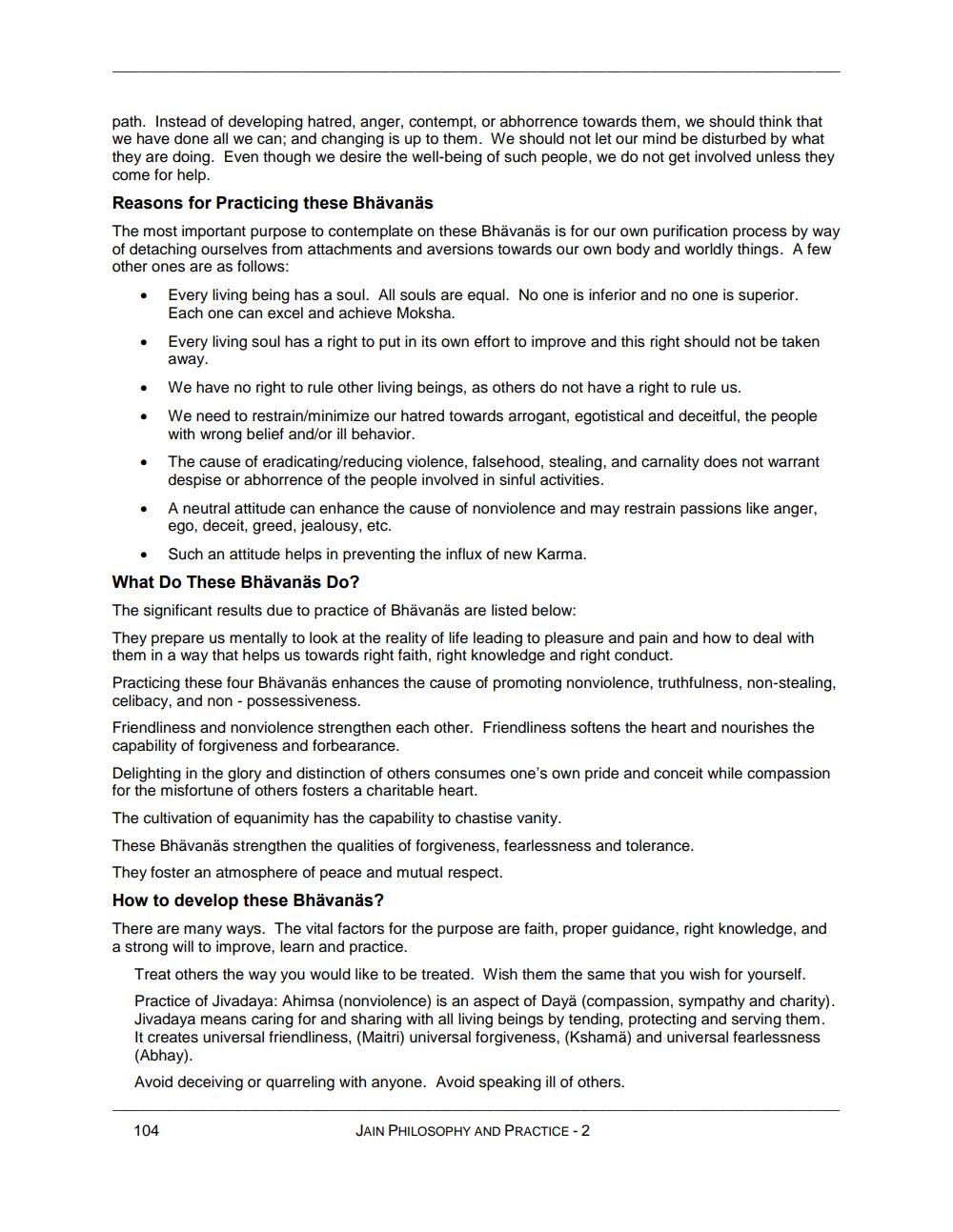________________
path. Instead of developing hatred, anger, contempt, or abhorrence towards them, we should think that we have done all we can; and changing is up to them. We should not let our mind be disturbed by what they are doing. Even though we desire the well-being of such people, we do not get involved unless they come for help. Reasons for practicing these Bhävanäs The most important purpose to contemplate on these Bhävanäs is for our own purification process by way of detaching ourselves from attachments and aversions towards our own body and worldly things. A few other ones are as follows:
Every living being has a soul. All souls are equal. No one is inferior and no one is superior. Each one can excel and achieve Moksha. Every living soul has a right to put in its own effort to improve and this right should not be taken away. We have no right to rule other living beings, as others do not have a right to rule us. We need to restrain/minimize our hatred towards arrogant, egotistical and deceitful, the people with wrong belief and/or ill behavior. The cause of eradicating/reducing violence, falsehood, stealing, and carnality does not warrant despise or abhorrence of the people involved in sinful activities. A neutral attitude can enhance the cause of nonviolence and may restrain passions like anger, ego, deceit, greed, jealousy, etc.
Such an attitude helps in preventing the influx of new Karma. What Do These Bhävanäs Do? The significant results due to practice of Bhävanäs are listed below: They prepare us mentally to look at the reality of life leading to pleasure and pain and how to deal with them in a way that helps us towards right faith, right knowledge and right conduct. Practicing these four Bhävanäs enhances the cause of promoting nonviolence, truthfulness, non-stealing, celibacy, and non- possessiveness. Friendliness and nonviolence strengthen each other. Friendliness softens the heart and nourishes the capability of forgiveness and forbearance. Delighting in the glory and distinction of others consumes one's own pride and conceit while compassion for the misfortune of others fosters a charitable heart. The cultivation of equanimity has the capability to chastise vanity. These Bhävanäs strengthen the qualities of forgiveness, fearlessness and tolerance. They foster an atmosphere of peace and mutual respect. How to develop these Bhävanäs? There are many ways. The vital factors for the purpose are faith, proper guidance, right knowledge, and a strong will to improve, learn and practice.
Treat others the way you would like to be treated. Wish them the same that you wish for yourself. Practice of Jivadaya: Ahimsa (nonviolence) is an aspect of Dayä (compassion, sympathy and charity). Jivadaya means caring for and sharing with all living beings by tending, protecting and serving them. It creates universal friendliness, (Maitri) universal forgiveness, (Kshamä) and universal fearlessness (Abhay). Avoid deceiving or quarreling with anyone. Avoid speaking ill of others.
104
JAIN PHILOSOPHY AND PRACTICE -2




